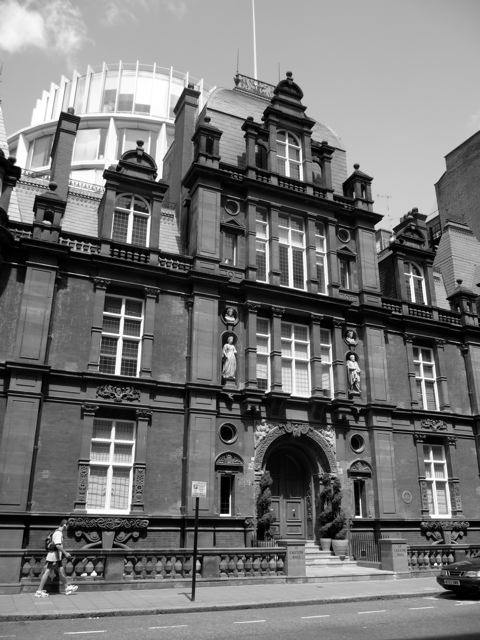 |
| Caxton Hall |
"[T]he Society for the Protection of Unborn Children and the Royal College of Obstetricians and Gynaecologists are really too much. I don’t know how many of the 460 consultant gynaecologists in England and Wales are members of the RCOG, but last week at Caxton Hall a couple of hundred of them voted 192 to 5 against the [Abortion] Bill and one of them said they would all emigrate if it became law, apparently on the ground that it would turn them into compulsory state abortionists. I don't think even the ones at the meeting will go abroad..."It should noted that the RCOG, was then opposed to the Abortion Bill (later Act). In 1966, the RCOG Council commented:
“It has been repeatedly stated that as many as 100,000 criminal abortions are induced in this country each year, and a more recent estimate is 250,000. These, and an earlier figure of 50,000, are without any secure factual foundation of which we are aware.”
(“Legalised Abortion: Report by the Council of the Royal College of
Obstetricians and Gynaecologists”, British Medical Journal, 1966; 1: 850-854.)
Obstetricians and Gynaecologists”, British Medical Journal, 1966; 1: 850-854.)
The RCOG Council showed that, in 1962, only approximately 14,600 women in England and Wales had received hospital treatment for the consequences of criminal abortion.
Yet, as Rolph rightly predicted, not many obstetricians or gynaecologists emigrated or changed profession following the passing of the Abortion Act. Most simply conformed to the Abortion Act, and those who wouldn't conform were marginalised. In fact, today the RCOG is the de facto trade union for Britain's abortionists, and now violates the right of conscientious objection to abortion (contrary to Archbishop Vincent Nichols' claim last October). The RCOG's policy is that:
"abortion and contraception are an integral part of comprehensive sexual and reproductive health services."and also that:
"Practitioners cannot claim exemption from giving advice or performing the preparatory steps to arrange an abortion where the request meets the legal requirements. Such steps include referral to another doctor, as appropriate."This phenomenon of conformity disproves the argument made by some liberal voices within Catholic circles that the pro-life movement should not insist on legal bans on abortion being passed and upheld. The effect of the Abortion Act was not simply to increase massively the number of abortions (ten-fold within a few years of the Act being passed to over 200,000 today). The Abortion Act led to the wholesale corruption of obstetrics and gynaecology, with doctors putting conformity to an unjust law above human rights, medical ethics, proper healthcare and the welfare of women. This phenomenon has been rightly described as "the banality of evil" (for more information about it, read "The effect of abortion on moral character" by Anthony Ozimic, SPUC's communications manager).
Comments on this blog? Email them to johnsmeaton@spuc.org.uk
Sign up for alerts to new blog-posts and/or for SPUC's other email services
Follow SPUC on Twitter
Like SPUC's Facebook Page
Please support SPUC. Please donate, join, and/or leave a legacy